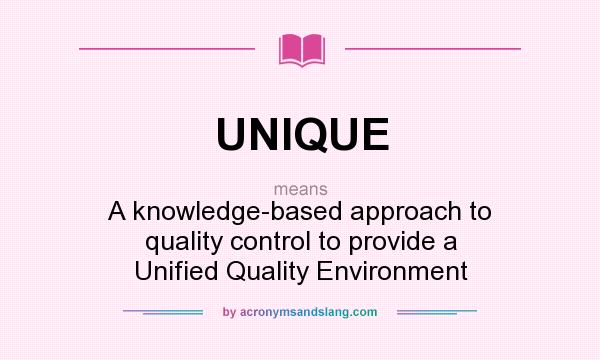


Each historical event is a unique congeries of factors, people, or chronology. There are no clear blueprints to be discovered in history that can help us shape the future as we wish. When sense 1 or sense 2a is intended, unique is used without qualifying modifiers. In modern use both comparison and modification are widespread and standard but are confined to the extended senses 2b and 3. With popular use came a broadening of application beyond the original two meanings (here numbered senses 1 and 2a). Todd entered it as a foreign word in his edition (1818) of Johnson's Dictionary, characterizing it as "affected and useless." Around the middle of the 19th century it ceased to be considered foreign and came into considerable popular use. Unique dates back to the 17th century but was little used until the end of the 18th when, according to the Oxford English Dictionary, it was reacquired from French. Objections are based chiefly on the assumption that unique has but a single absolute sense, an assumption contradicted by information readily available in a dictionary. Many commentators have objected to the comparison or modification (as by somewhat or very) of unique, often asserting that a thing is either unique or it is not. The eccentric eating habits of preschoolers erratic stresses a capricious and unpredictable wandering or deviating.Ī friend's suddenly erratic behavior odd applies to a departure from the regular or expected.Īn odd sense of humor quaint suggests an old-fashioned but pleasant oddness.Ī quaint fishing village outlandish applies to what is uncouth, bizarre, or barbaric.Ĭan something be very unique or somewhat unique?: Usage Guide The peculiar status of America's First Lady eccentric suggests a wide divergence from the usual or normal especially in behavior.

strange stresses unfamiliarity and may apply to the foreign, the unnatural, the unaccountable.Ī journey filled with strange sights singular suggests individuality or puzzling strangeness.Ī singular feeling of impending disaster unique implies singularity and the fact of being without a known parallel.Ī career unique in the annals of science peculiar implies a marked distinctiveness. Strange, singular, unique, peculiar, eccentric, erratic, odd, quaint, outlandish mean departing from what is ordinary, usual, or to be expected.


 0 kommentar(er)
0 kommentar(er)
